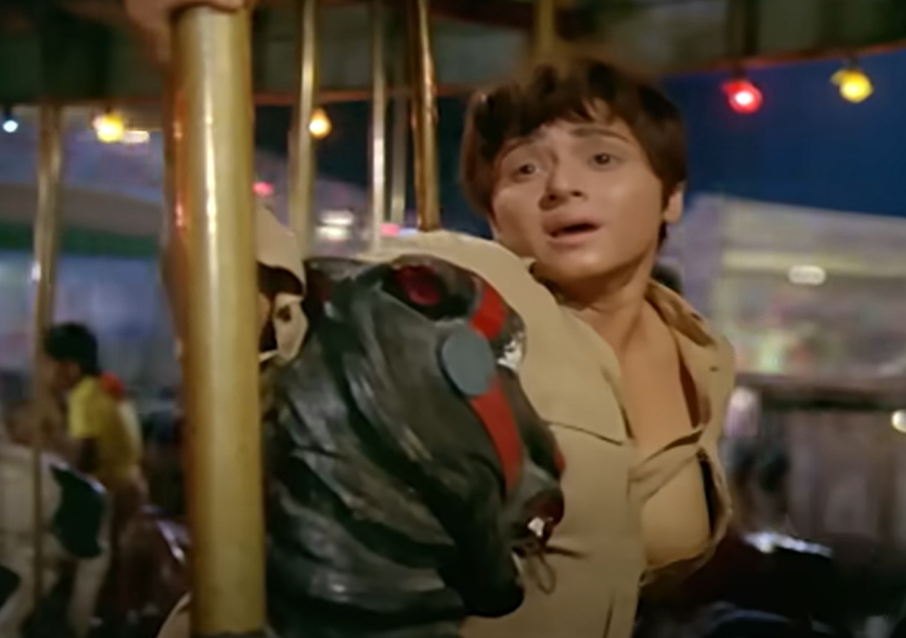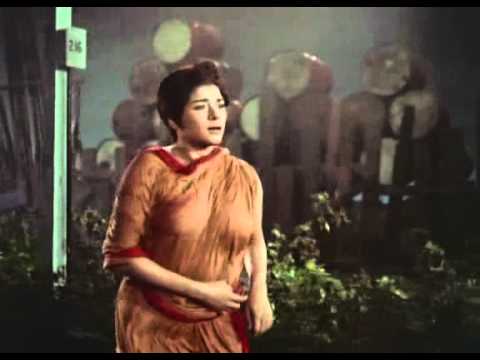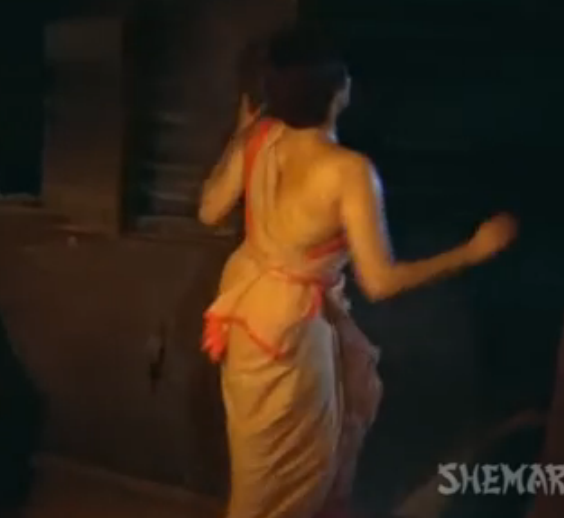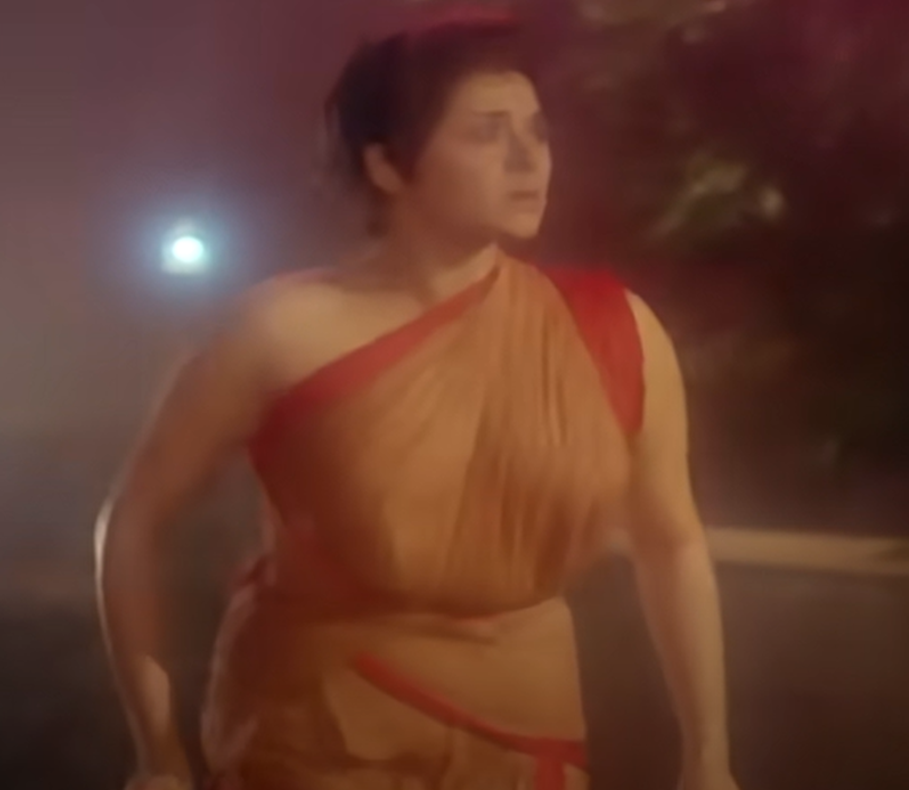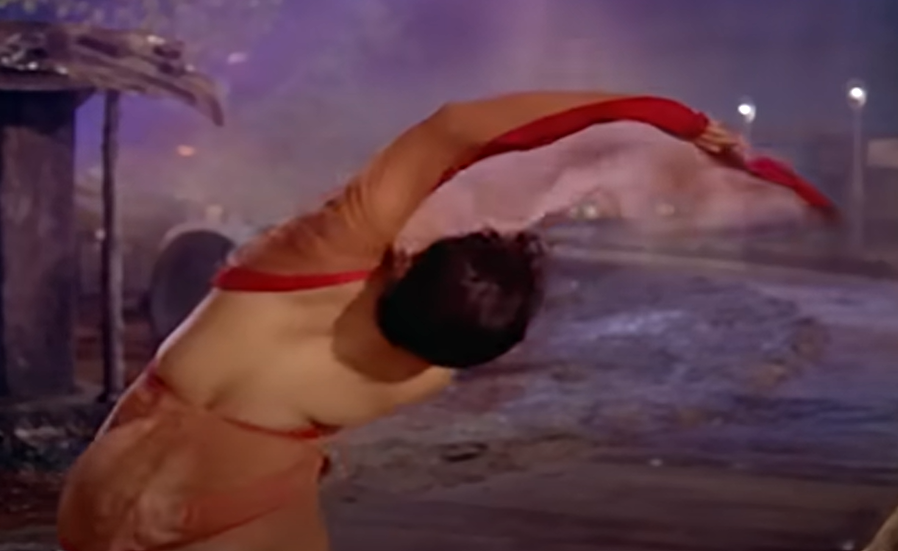Mera Naam Joker (1970)
The film was NOT released in 1972 as claimed by an otherwise reliable site
Contents |
Crew
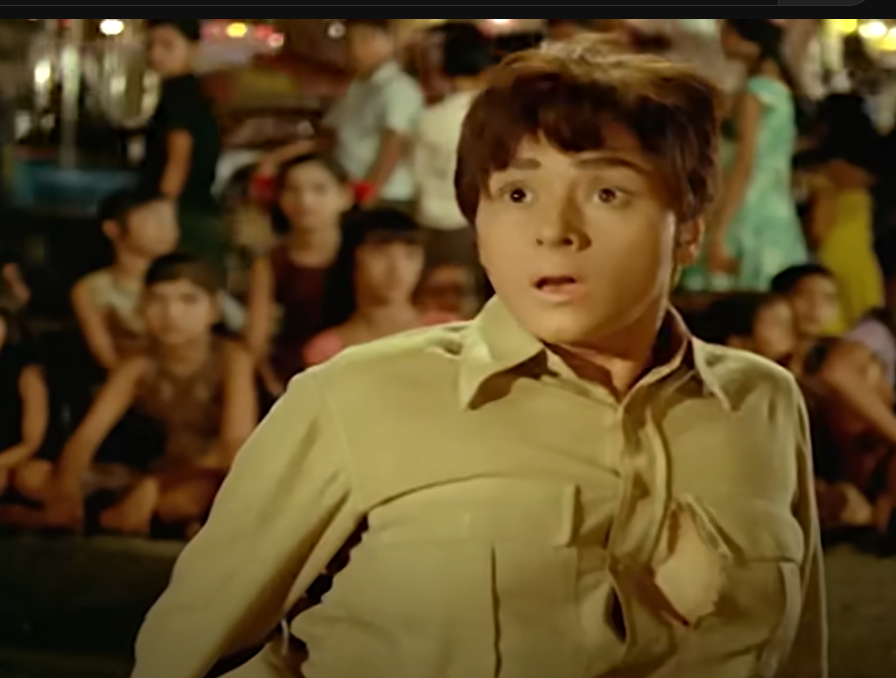
To see how this sturdy-looking shirt's tear widens under gravitational forces, see below
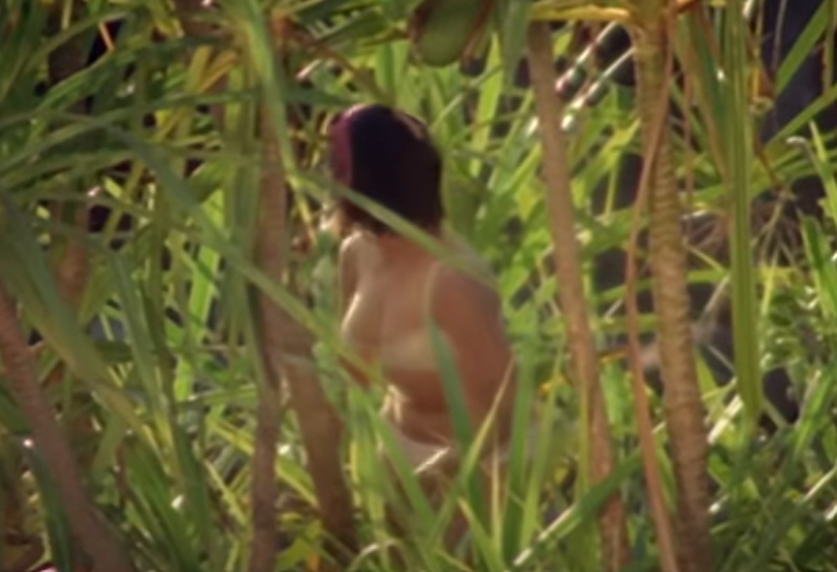


Director: Raj Kapoor
Writer: Khwaja Ahmad Abbas
Cast
Achala Sachdev
Agha
Dara Singh
Dharmendra
Eduard Sjereda
Ksenia Ryabinkina
Manoj Kumar
Om Prakash
Padmini
Raj Kapoor
Rajendra Kumar
Rajendra Nath
Rishi Kapoor
Simi Garewal
Specifications
Country: India
Language: Hindi | Russian | English
Total playing time: 224 min
Sound Mix: Mono (RCA Sound System)
Color: Color (Technicolor)| Black and White (partial)
Aspect Ratio: 1.44 : 1
Songs
All music by Shankar-Jaikishan
Jeena Yahaan Marna Yahaan Iske Siva Jaana Kahaan Lyrics by Shailendra Sung by Mukesh
Teetar Ke Do Aage Teetar Teetar Ke Do Peechhe Teetar Lyrics by Hasrat Jaipuri Sung by Asha Bhosle and Mukesh
Kehta Hai Joker Saara Zamaana Lyrics by Hasrat Jaipuri Sung by Mukesh (NOT Manna Dey)
Ae Bhai Zara Dekhe Chalo Aage Hi Nahin Peechhe Bhi Lyrics by Neeraj Sung by Manna Dey
Ang Lag Jaa Balma Lyrics by Hasrat Jaipuri Sung by Asha Bhosle
Daagh Na Lag Jaaye Hai Kahin Daag Na Lag Jaaye Lyrics by Hasrat Jaipuri Sung by Asha Bhosle and Mukesh
Kaate Na Kate Raina Lyrics by Hasrat Jaipuri Sung by Manna Dey and Asha Bhosle
Jaane Kahaan Gaye Woh Din Lyrics by Hasrat Jaipuri Sung by Mukesh
Kaare Kaare Badara Sooni Sooni Ratiyan Lyrics by Shailendra Sung by Asha Bhosle
Kal Khel Mein Ham Ho Na Ho (a section of Jeena Yahan Marna Yahan) Lyrics by Shaily Shailendra Sung by Mukesh
Sadke Heer Tujhpe Ham Fakir Sadake Lyrics by Prem Dhawan Sung by Mohammed Rafi
Wish Me Luck As You Wave Me Goodbye English traditional
Oh! Susanna Written by Stephen Foster US Folksong
Story
The film was billed as the autobiography (and swansong) of India's then commercially most successful film director Raj Kapoor who, in the 1950s and the early 1960s, had also been of the Big Three actor- stars of Filmistan. However, audiences had to stretch their imaginations to find allusions to Kapoor's real life in the rambling, unfocussed plot.
The first part of the film was set in a school in the Nilgiris. Let us assume that the Nilgiris allude to Dehradun, where Kapoor was schooled for a few years. But did Kapoor's all-boy alma mater Colonel Brown Cambridge School have female teachers who stumbled into streams so that the school's students could ogle them half-naked? However, as a work of cinema this part worked reasonably well.
The circus was used as a metaphor for Filmistan, India's Hindi-Urdu film industry and to Kapoor's life in the films. The second part, about Kapoor's life in the circus, was set partly in the Union of Soviet Socialist Republics, in which country Kapoor had enjoyed some popularity since the late 1950s. The Kapoor character gets himself a girlfriend from the USSR in this part, only to be parted from her. The film remained tolerable till the end of this section.
The third part simply disintegrated, partly under the weight of dated songs (composed over the five years or so that Kapoor took to make the film) that did not fit into the plot either. Not that there was anything of a plot left. Any pretence to the film being an allegorical autobiography had vanished by now. Did the disjointed sequences of this part allude to any part of Kapoor's real life? Had he ever lived with a cross-dressing female (played by Padmini, who was no longer young by then) whose gender he discovered by a dramatic accident?
The double- album soundtrack
The soundtrack of Mera Naam Joker was the first Indian film score to be released as a double album. While the songs were popular as singles, music lovers felt that there were not enough songs to merit a double album. As a result the double album was not a commercial success, though the film’s songs released as singles and in other formats were.
SIDE ONE
JEENA YAHAN MARNA YAHAN (Pt. 1)
Singer: Mukesh
Lyricist: Shaili Shailendra
Music: Shankar-Jaikishan
TEETAR KE DO AAGE TEETAR
Singers: Asha Bhonsle, Mukesh, Simi and chorus
Music: Shankar-Jaikishan
Lyrics: Hasrat Jaipuri
KEHTA HAI JOKER SAARA ZAMANA
Singer: Mukesh
Music: Shankar-Jaikishan
Lyrics: Neeraj
SIDE TWO
AE BHAI ZARA DEKH KE CHALO
Singer: Manna Dey
Music: Shankar-Jaikishan
Lyrics: Neeraj
ANG LAG JAA BAALMA
Singer: Lata Mangeshkar
Music: Shankar-Jaikishan
Lyrics: Shailendra
SIDE THREE
DAAGH NA LAG JAYE
Singers: Asha Bhonsle & Mukesh
Music: Shankar-Jaikishan
Lyrics: Hasrat Jaipuri
KAATE NA KATEN RAINA
Singers: Asha Bhonsle & Manna Dey
Music: Shankar-Jaikishan
Lyrics: Shailendra
SIDE FOUR
SADQE HEER TUJH PE
Singer: Mohd. Rafi
Music: Shankar-Jaikishan
Lyrics: Neeraj
JAANE KAHAN GAYE WO DIN
Singer: Mukesh
Music: Shankar-Jaikishan
Lyrics: Hasrat Jaipuri
JEENA YAHAN MARNA YAHAN (Pt. 2)
Singer: Mukesh
Music: Shankar-Jaikishan
Lyrics: Shaili Shailendra
See also
For more pictures from this film, see Adult content in Hindi-Urdu cinema
